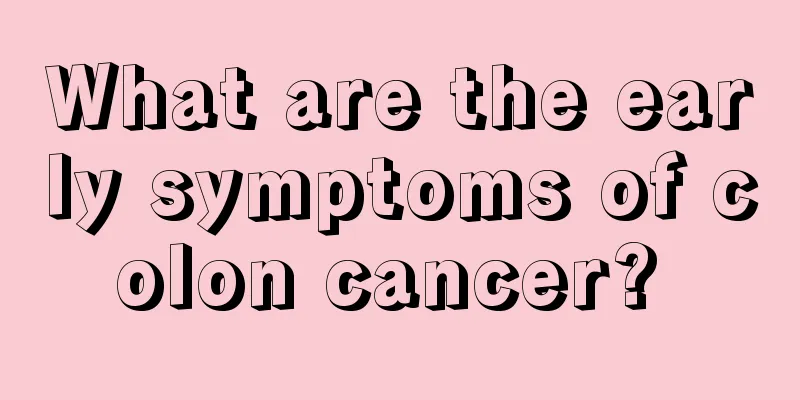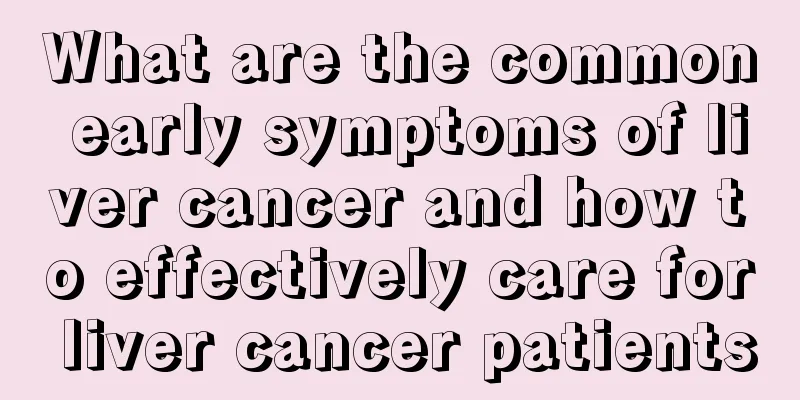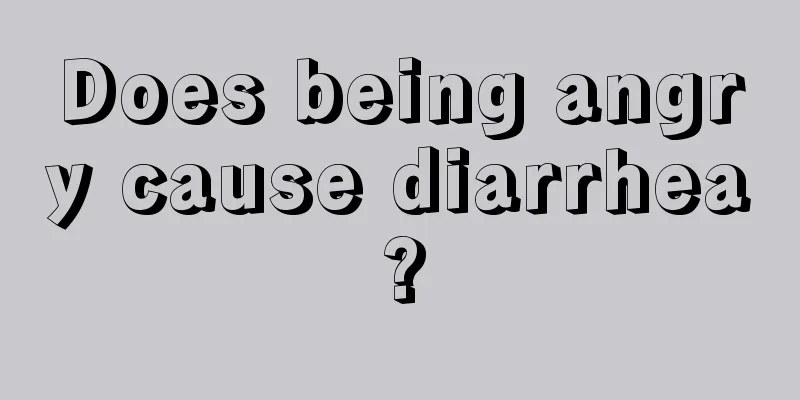What are the early symptoms of colon cancer?

|
With the progress of the times, people's living standards are getting higher and higher. While you are enjoying life with your family, have you ever thought about paying attention to some cancers? Although modern technology is advanced, the symptoms of early cancer patients are extremely subtle due to the hidden nature of colon cancer. Clinically, most colon cancer patients have already reached the middle and late stages when they show obvious symptoms. Here, we remind our friends that even if you are not sick, you should pay attention to it. Even if you don't consider yourself, you should consider your family. The health of your family is your own health. Since the early symptoms of colon cancer are not very obvious, they are easily ignored by people, which eventually leads to serious consequences. However, if you pay attention to it, you can still find some early symptoms. The early symptoms of colon cancer are mainly as follows: 1. Abdominal mass About 50% of colon cancer patients may find abdominal masses, which are cancerous tumors or tumors that have infiltrated and adhered to the omentum and surrounding tissues. They are hard and irregular in shape. Some masses may have a certain degree of mobility along the intestinal tract, while in the late stage of colon cancer, the masses may be fixed due to severe cancer infiltration. 2. Changes in bowel habits In the case of right-sided colon cancer, the early symptoms are thin stools with pus and blood, and the frequency of bowel movements increases. When the tumor continues to grow and affects the passage of stool, alternating diarrhea and constipation may occur. In contrast, in the case of left-sided colon cancer, the symptoms are mostly difficulty in defecation, which worsens with the progression of the disease. In addition, if the tumor is located lower, there may also be difficulty in defecation and a feeling of tenesmus. 3. Blood or mucus in stool In right-sided colon cancer, the amount of bleeding is small and is fully mixed with feces due to the peristalsis of the colon, making it difficult to see with the naked eye, but the occult blood test is often positive; in left-sided colon cancer, the bleeding and mucus are not mixed with feces, and about 1/4 of the patients can observe fresh blood and mucus in the feces with the naked eye. 4. Digestive tract symptoms Symptoms include abdominal distension, discomfort or indigestion. In the case of right colon cancer, most cases are abdominal pain or dull pain. It may be intermittent at first, then become continuous, often located in the right lower abdomen, much like a chronic appendicitis attack; in the case of left colon cancer, most cases are obstruction that may occur suddenly, with abdominal cramps, accompanied by abdominal distension, hyperperistalsis, constipation and obstructed gas discharge, or chronic obstructive symptoms such as abdominal distension, paroxysmal abdominal pain, hyperactive bowel sounds, constipation, blood and mucus in the stool, etc. 5. Symptoms of poisoning Common symptoms include anemia, low fever, fatigue, weight loss, edema, etc., especially anemia and weight loss. Early stage colon cancer is usually hidden, and early detection and early treatment can achieve good treatment results. In addition, if middle-aged and older patients have the following symptoms, they should be highly alert to the possibility of colon cancer and it is recommended to see a doctor as soon as possible to avoid delaying treatment. 1. Changes in bowel habits (such as constipation, diarrhea or difficulty in defecation), persistent abdominal discomfort, dull pain or bloating in the recent period. The stool suddenly becomes thinner, or contains blood and mucus, and the fecal occult blood test is continuously positive. 2. Recent onset of unexplained anemia, fatigue, or weight loss. 3. A lump is felt in the abdomen. The above is a brief introduction to "What are the early symptoms of colon cancer?" For people who are related to the pathogenic factors of colon cancer, it is recommended to take preventive measures for colon cancer, follow the doctor's instructions, and then receive specific treatment. I hope that patients can recover soon! If you have other questions about colon cancer, please consult our experts online or call for consultation. Colon cancer http://www..com.cn/zhongliu/jca/ |
<<: What are the early symptoms of esophageal cancer?
>>: What are the preventive measures for breast cancer
Recommend
Can baking soda whiten teeth?
Can soda really whiten teeth? If soda can't w...
Does adolescent osteosarcoma affect life expectancy?
The body is our capital, and health is what we pu...
What are the hazards of ovarian tumors
What are the hazards of ovarian tumors? Ovarian t...
What are the symptoms if lung cancer recurs? If there are three symptoms, it means lung cancer recurs
Cancer is not a minor illness. Lung cancer is a r...
What are the symptoms of heart failure
We all know that heart failure is a very serious ...
How big is the fetus at 45 days of pregnancy?
At 45 days of pregnancy, it is still in the early...
Will stretch marks disappear automatically?
If a person gains fat and weight very quickly, th...
Does liver cancer still need treatment in the late stage? There are two treatment methods for liver cancer in the late stage
One of the more serious liver diseases is liver c...
Why do I feel cold but not fever?
If you feel cold but not feverish, you should pay...
The difference between deciduous teeth and permanent teeth
When we are a tiny embryo, our deciduous teeth an...
What symptoms may children have bladder cancer
Children are called the flowers of the motherland...
The three most common ways of laryngeal cancer spreading and metastasis
As the disease worsens, the symptoms of laryngeal...
How to preserve fresh broad beans
When broad beans are on the market, many people b...
What are the uses and usage of potassium permanganate?
In life, potassium permanganate is a very commonl...
What to do if dampness causes internal heat again
When the weather is hot, people often feel genera...









